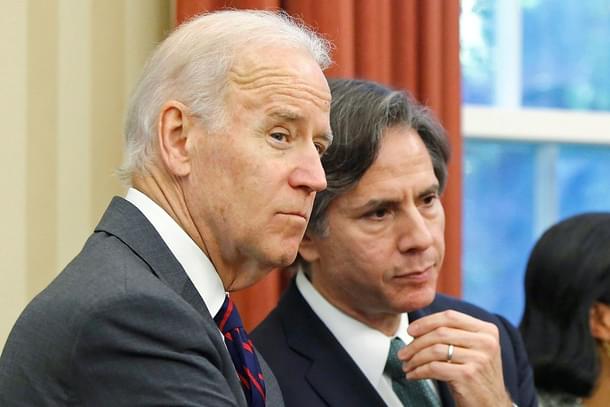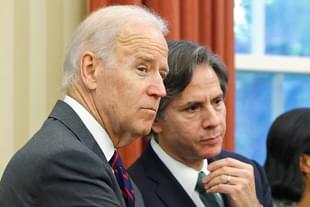News Brief
Biden’s ‘Guidance’ On National Security Says US Will Deepen Partnership With India And Focus On Indo-Pacific, Deter Chinese Aggression
Swarajya Staff
Mar 04, 2021, 04:13 AM | Updated 04:28 AM IST
Save & read from anywhere!
Bookmark stories for easy access on any device or the Swarajya app.


The United States will continue to work with India and focus on the Indo-Pacific to deal with common challenges, President Joseph Biden’s Interim National Security Strategic Guidance, issued on 3 March, says.
The guidance on national security, which calls out an increasingly assertive and authoritarian China, says the US will deepen its partnership with India.
“Beyond our core alliances, we will also double down on building partnerships throughout the world, because our strength is multiplied when we combine efforts to address common challenges, share costs, and widen the circle of cooperation,” the document, available here, reads.
“...our vital national interests compel the deepest connection to the Indo-Pacific...,” it says, adding, “we will deepen our partnership with India...”
On China, Biden’s guidance document says the US will “ support China’s neighbors” and work with “like-minded countries” to forge a common approach.
The document calls China the “only competitor” of the US which is potentially capable of using its “economic, diplomatic, military, and technological power to mount a sustained challenge to a stable and open international system”.
“By bolstering and defending our unparalleled network of allies and partners, and making smart defense investments, we will also deter Chinese aggression and counter threats to our collective security,” the document says.
“...we will ensure that America, not China, sets the international agenda,” it adds.
On Afghanistan, where India has critical security and economic interests, the guidance says the US will work to responsibly the “America’s longest war”.
The document was issued after Secretary of State Antony Blinken delivered his first major speech underlining the Biden’s foreign policy priorities.
Apart from the favorite Biden theme — the need to strengthen democracy, Blinken focused on China, the Covid-19 challenge and alliances.
Blinken called the US’ relationship with China the “biggest geopolitical test” of the 21st century. The US’ relationship with China, he said, “will be competitive when it should be, collaborative when it can be and adversarial when it must be”.
Blinken did not mention India during his speech.
However, in his introductory phone call with External Affairs Minister Dr S Jaishankar in February, Blinken had discussed Indo-Pacific and Quad.
“The Secretary and the Minister also discussed...the value of US-India cooperation across the Indo-Pacific. Both sides look forward to expanded regional cooperation, including through the Quad, and to address the challenges of COVID and climate change,” the US State Department readout said.





